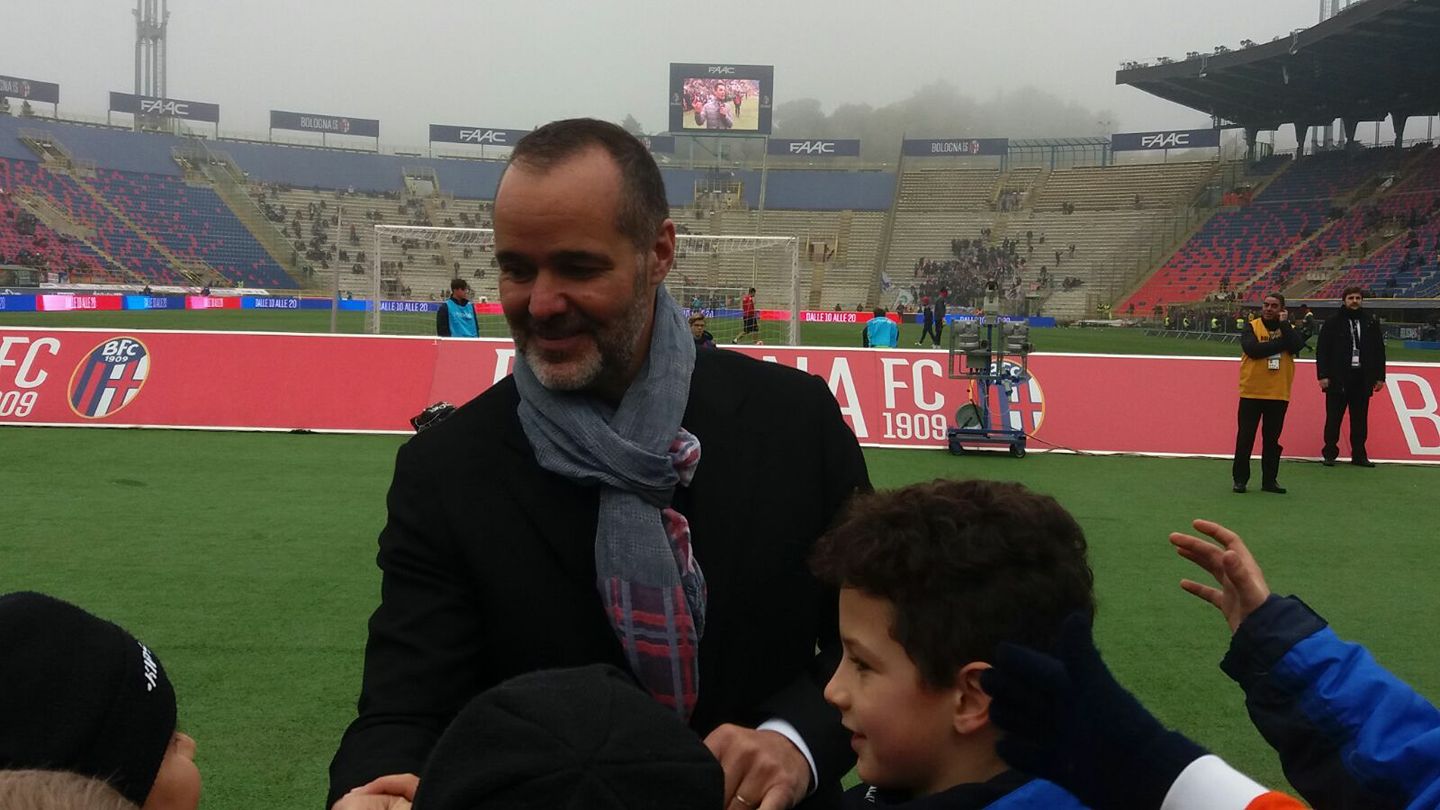Multi Languages
Bologna on my mind: Saputocillin. (11 Jan)
Written by: Massimo Sampaolesi. Translated by: Carlotta Belluzzi.
Bologna can get better. It’s not an obligation, but it’s an opportunity. It would be good for it to be considered as such, because when it becomes an imposition, and it is not respected, then the person who bestowed the imposition will probably get angry.
The “step by step” approach taken by the management team, follows this principle: the transformation of a team like any other (which Bologna has been throughout the last few, long, years) into a main character. It is not a strict rule, but a vision. Because after Dall’Ara and the ‘60s and ‘70s, Bologna has been losing its glory, inasmuch as it needed a lawyer from New York to avoid the destruction of that beloved crest that makes us all one. But up to that point, whether we like it or not, Ezio Pascutti and Giacomo Bulgarelli’s Bologna had ceased to exist. Further proof of it is the fact that people look up to Atalanta, Chievo, and other similar teams, not without a hint of envy and ambition, as if they were a decadent aristocrat, longingly looking into the window of a restaurant, gazing at its guests drinking beer and eating delicious pizzas.
But there’s worse. Many today consider Bologna a small, maybe even provincial team, and the problem is that the performance of the squad appears to fit these descriptions: not only the more recent performances, which only represent a small part of the problem, but those that we have been stacking up since the ‘80s, which were altogether not that impressive. Let us only think of the fact that when we came across champions like Baggio, Signori, and even “El Jardinero” Julio Cruz (who at most scored 12 goals in one season), we felt emotional, as we realized the transient nature of such circumstances.
Indeed transient circumstances, and delivered by chance, not planning. Until yesterday, after the Golden Age, Bologna never reached the summit, and those teams who did, progressively distanced themselves more and more. And these transient circumstances are so rare that they are stuck in our minds as if they were set in stone, indeed because of their uniqueness.
But what has caused the ultimate destruction was our anger and our dissatisfaction (the former caused by the latter). We let out anger build up through time, and it transformed us (all of us, from the press to the fans) into a continuous stream of complaints, up to the point of criticizing the new players for the squad, without even having seen them play with our colours. All this is to say that we are sons of dissatisfaction, but there’s something that could heal us from this pathology: rational analysis of the facts. Talking about our current situation without considering our journey so far, makes for a clearly incomplete and unreliable analysis. Of course, at-the-ready opinions are much easier to dispense, especially if different opinions are dismissed as incorrect; but they make the illness worse, instead of curing it. And that’s even more true during these days of football market: it doesn’t matter whether our team manager fails or succeeds: he’ll just be performing exactly like all other team managers, who fail and succeed. The last instance being Bruno Petkovic, whose arrival to Bologna has already stirred a flurry of complaints, even before being made official.
Let us not, then, let our anger (which often originates from other, personal matters) loose. Let us not do this against our very own colours. Some people don’t like the words “project” and “strategy”, but I’m sure we can come to terms with that.
The cure exists: it’s called Saputocillin.
Continua a leggere le notizie di 1000 Cuori Rossoblu e segui la nostra pagina Facebook







